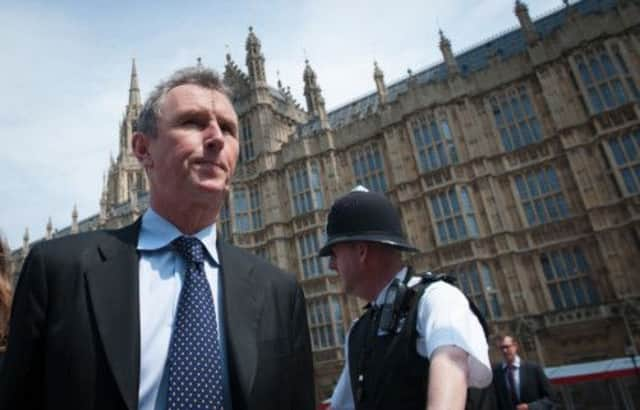David Maddox: Deputy Speaker candidates show honesty


Yet, as a field of seven candidates made up of Tory MPs suggests, the competition to replace Nigel Evans as Deputy Speaker could be quite significant in the life of the Commons and, more importantly, who takes over from John Bercow as Speaker.
Yesterday there was a final hustings for the seven candidates, including Eleanor Laing, the Tory MP for Epping Forest who hails from Paisley and is the current strong favourite among the bookies. Mrs Laing is up against the MP for “get me out of here” Nadine Dorries; former minister Simon Burns; David Amos – famous for holding on to Basildon and beoming the face of John Major’s surprise victory in 1992; the leading eurosceptic and critic of David Cameron, Brian Binley; North West Norfolk MP Henry Bellingham and Devon South West MP Gary Streeter.
Advertisement
Hide AdAdvertisement
Hide AdThe pitches by the not-entirely-magnificent seven contained some refreshing honesty from politicians.
Ms Dorries may not have entirely pleased the electorate of MPs by saying “they are not very sophisticated at all”. But then again she suggested that they voted for others with more experience.
Mr Amos admitted he is attracted by the extra salary and the cushion upon which to put his feet during debates.
Mrs Laing conceded all the candidates were experienced, independent, fair and would represent backbenchers and it would come down to “a gut feeling”.
Mr Burns’ pitch was clearly to Tory MPs who hate the Speaker Mr Bercow, formerly one of their own, saying the “elephant in the room” is that that he and the Speaker don’t like one another.
Mr Streeter said that if a recruitment agency was looking for somebody to fit the job description it would “make its way to my door.”
Mr Binley portrayed himself as the Nigel Evans candidate, who would step down if the former Deputy Speaker is cleared of the rape charges which forced him to resign.
Meanwhile Mr Bellingham, whose odds have tumbled from 16/1 to 4/1, was mildly embarrassed by the suggestion that Labour MPs were backing him because as an Old Etonian he was an easy candidate for the Labour Deputy Speaker Lindsay Hoyle to run against when Mr Bercow steps down.
Advertisement
Hide AdAdvertisement
Hide AdAmong the machinations of politicians, this could play an important part in the final decision. While anybody who sits in the Speaker’s chair is important because he or she gets to decide who is called and who is not, it is the Speaker who, as Mr Amos said, is “the important one”. He makes the decisions on how debates are called and forcing ministers to come to the House.
In the end though, this vote could be swung on the only policy presented from all seven: Mr Bellingham said if he was in the chair he would let MPs know when they would speak so they did not have to sit for hours waiting their turn and could nip off for a tea break.